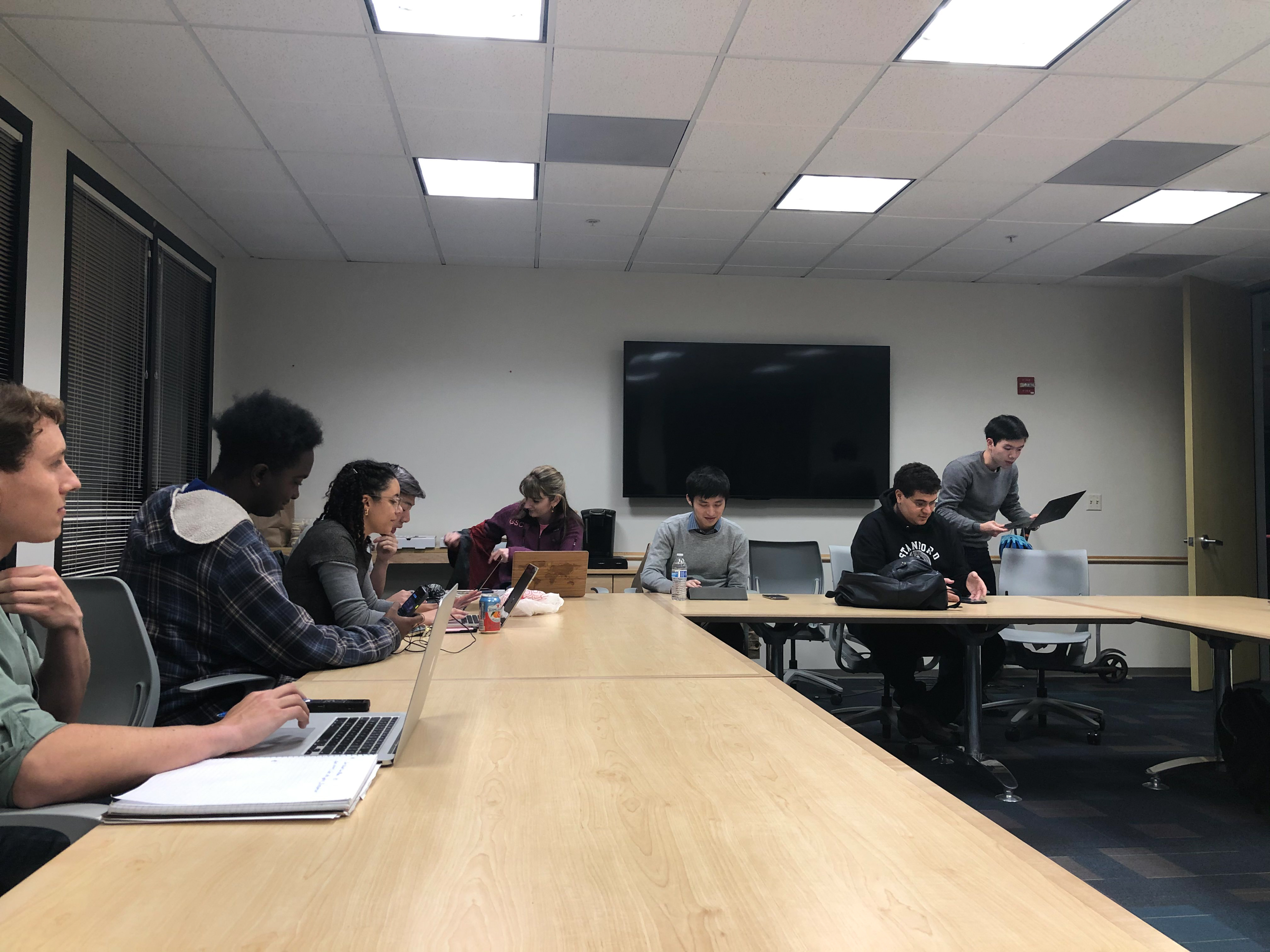At Wednesday’s Graduate Student Council (GSC) meeting, councilors voted to endorse the ASSU sexual violence prevention report that was introduced in the previous week’s meeting in an effort to decrease instances of sexual harassment, assault and violence on campus. Councilors supported initiatives to improve the mental health of Stanford students and faculty. They also heard updates from Residential and Dining Enterprises (R&DE) on graduate housing developments.
Sexual violence training
Stanford Womxn in Law co-founder Chloe Stoddard ’21 brought to attention a petition that seeks to “hold Stanford administration accountable for ending campus rape culture.”
Stoddard said she created the petition in response to surveys at the campus and national level that found that women of color and members of the transgender men, women, genderqueer and nonbinary (TGQN) community experience the highest rates of sexual harassment.
The petition seeks to improve sexual assault and harassment training through the creation of a student advisory committee, which will draw from the ideas of both undergraduate and graduate students.
“We haven’t yet completely outlined the steps that we are going to take to improve the current training because we wanted to implement a student advisory board,” Stoddard said.
Stoddard and the rest of the Stanford Womxn in Law Social Justice Committee have deemed current training insufficient because “people are not paying attention to the training,” Stoddard said, adding that, “So far, the only required sexual assault and harassment training for undergraduate students is during their first week at Stanford.”
Fourth-year theater and performance studies Ph.D student Kari Barclay said that the mandatory training for graduate students could also be completed through online videos. Many councilors, including fourth-year immunology Ph.D. student Lawrence Bai, agreed that training was an area that needed improvement.
In order to improve future training, Barclay offered survey data regarding sexual assault prevention training that was collected three years prior. Through this processed data, Barclay said that it would be possible to identify the types of groups on campus who have been sexually harassed in support of the petition’s cause.
Mental health
In response to the graduate student mental health crisis, the Office of the Provost will host “Community Conversations on Mental Health and Well-being” for Stanford students, staff and faculty. The initiative hopes to address ongoing discussion on campus regarding graduate student well-being and a culture of overwork.
Bai, who has been following the event since its inception last quarter, noted that the event will be held on Feb. 3 and 4 at Paul Brest Hall on the main campus and in Cardinal Hall on the Redwood City campus.
R&DE updates
The R&DE update included more details on the new Escondido Village Graduate Residences (EVGR), which councilors hope to tour before it opens its doors to students.
“I walked around one of the new buildings today for the third time, and it’s a pretty impressive place,” said R&DE representative Rebecca Benaderet. “I think students are gonna love it because there are a lot of collaboration spaces, huddle rooms and other ways for them to get together.”
There are 1,200 graduate students who are currently living off-campus that will be able to move on campus this upcoming school year. However, because R&DE has not yet released the housing rates for the EVGR, some councilors expressed concerns about whether graduate students will be able to afford these residences.
In response, Benaderet said that those who want to move on campus will not be restricted to only living in the EVGR, but will instead be able to choose from various graduate housing options. Benaderet said that R&DE is planning to move students in gradually, starting from the end of this spring and until the start of the 2020-21 academic year.
Contact Camryn Pak cpak23 ‘at’ stanford.edu.
